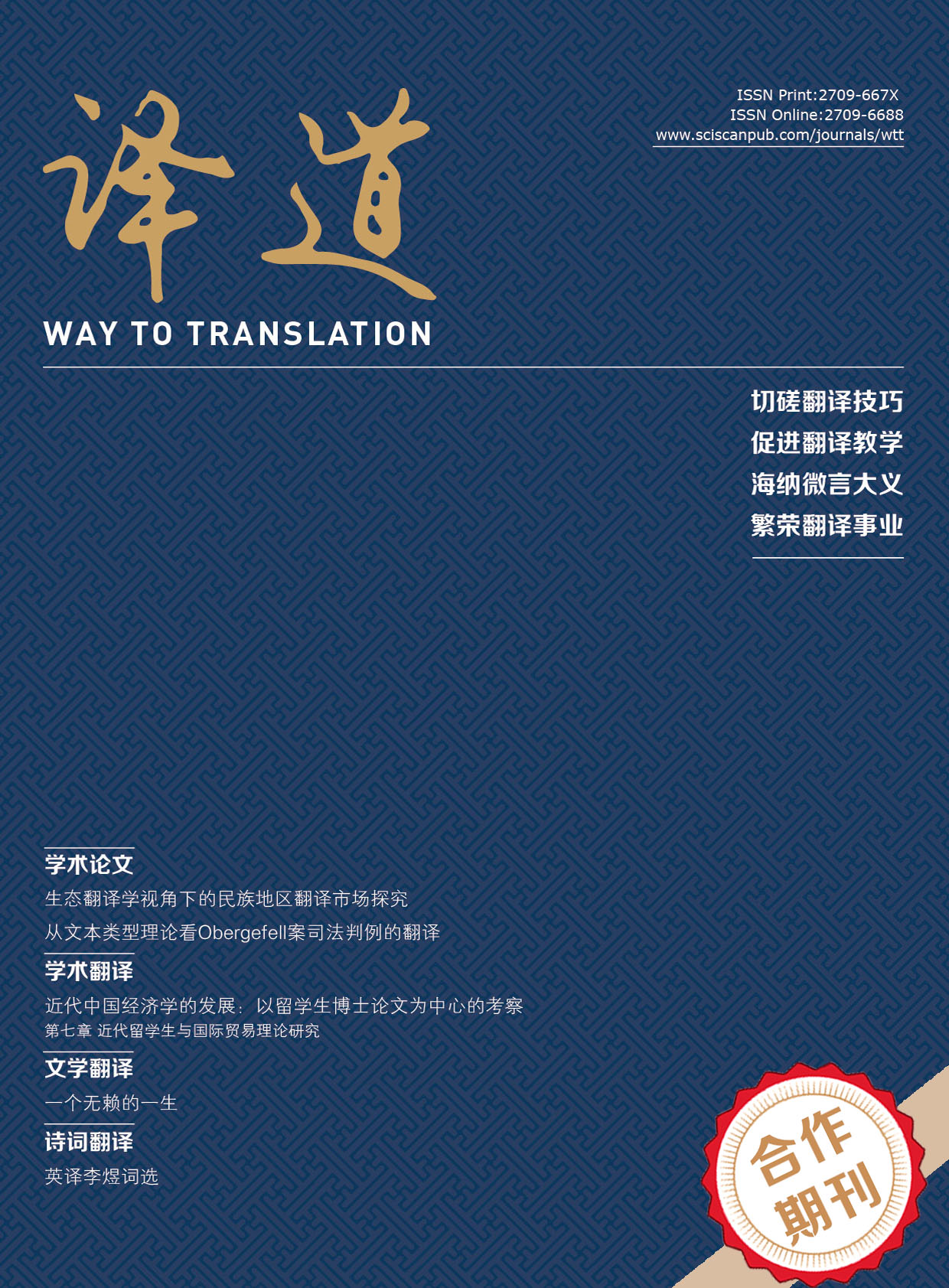Way to Translation
ISSN Print: 2709-667X
ISSN Online: 2709-6688
Contact Editorial Office
Subscribe to the latest published information from SCISCAN
“创新为魂”:翻译学国家社科基金申请和论文写作——李宏顺教授访谈录
“Innovation is a Key” in the Application of Research Project Grant from National Social Science Funding and Also in the Publication of Academic Papers in Translation Studies—An Interview with Professor Li Hongshun
- Authors: 朱慧瑶¹ 杨冰玉²
-
Information:
1.中南财经政法大学外国语学院,武汉; 2.北京外国语大学,北京
-
Keywords:
Innovation; The National Social Science Foundation project; Topic selection; The writing of academic paper in translation studies创新; 国家社科基金; 选题; 翻译论文写作
- Abstract: Professor Li Hongshun, director of Translators Association of Hubei. He Specializes in children’s literature translation and indirect translation research. He is Visiting scholar sponsored by China Scholarship Council to Katholic University of Leuven in Belgium and Durham University in the United Kingdom. He presided over a project of the Youth Fund of the Ministry of Education, and is now presiding over a research project of the National Social Science Foundation. He has published several papers in authoritative Chinese journals, such as “Foreign Language Teaching and Research” “Chinese Translators Journal” “Journal of Foreign Languages” “Comparative Literature in China” and other SSCI journals, like “Perspectives”. He independently translated or co-translated 4 books and got them published. One of his academic papers won the 17th Wuhan Social Science Achievement Excellence Nomination Award. In this interview, Professor Li discusses how to select the innovative topic of research project in the application of national social science funding and then based upon his own experiences, he further discusses how to be innovative and delve into a deeper level in the discussion in a logical manner in the writing of academic papers, and finally he talks about the widespread neglect of translation theory among translation master candidates. 李宏顺,中南财经政法大学外国语学院教授,湖北省翻译协会理事。主要从事儿童文学翻译、间接翻译研究。国家基金委公派比利时鲁汶大学和英国杜伦大学访问学者。主持完成教育部青年基金课题一项,现主持国家社科基金一项。在《外语教学与研究》《中国翻译》《外国语》《中国比较文学》等中文权威期刊和Perspectives等SSCI期刊发表多篇论文。独立或主持翻译出版4部译著。论文获第十七次武汉市社科成果优秀提名奖。在本次访谈中,李教授围绕其所主持的国家社科基金项目《复合间性视阈下的中国近代间接翻译研究(1898—1937)》畅谈翻译类国家社科基金选题的创新和项目研究思路的撰写,同时还讨论了学术论文选题的创新和投稿以及论文写作中的逻辑性和严密性等,最后提出了对翻译专硕中忽视翻译理论学习的现象的看法。
- DOI: https://doi.org/10.35534/wtt.0302009
- Cite: 朱慧瑶,杨冰玉.“创新为魂”:翻译学国家社科基金申请和论文写作——李宏顺教授访谈录[J].译道,2023,3(2):72-77.
















